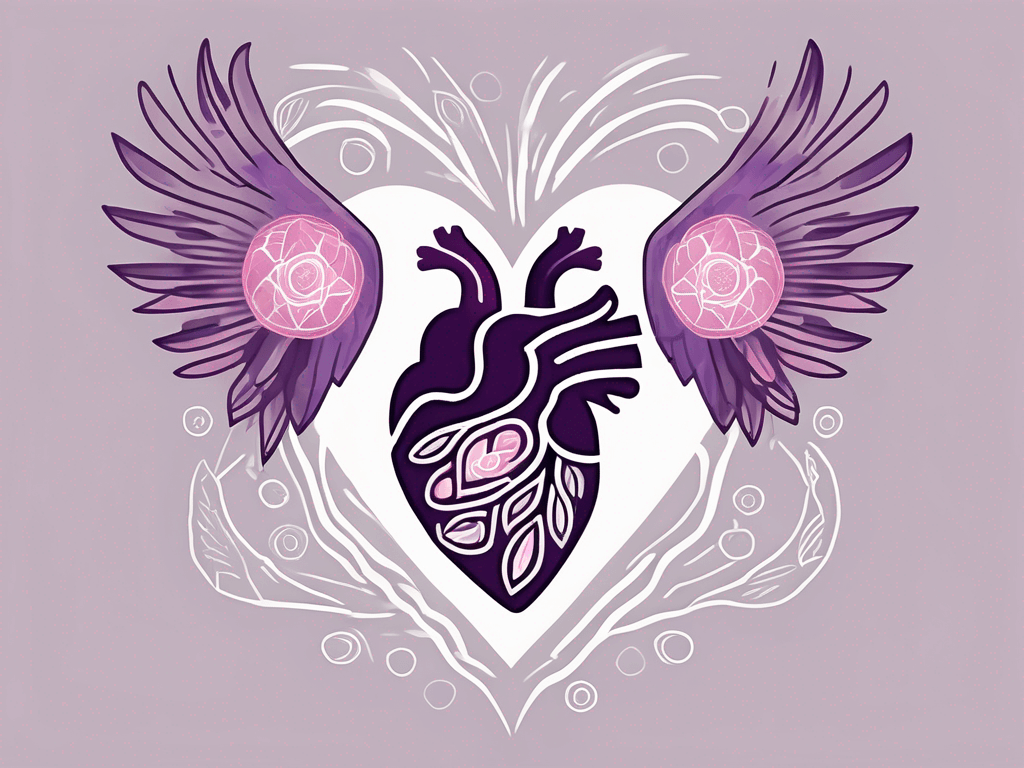Cancer survivorship is a complex journey, marked not only by the triumph over the disease but also by the long-term health challenges it poses, particularly to cardiovascular and respiratory systems. This article delves into the critical need for ongoing management of heart and lung health post-cancer treatment, highlighting how treatments like chemotherapy and radiation can inadvertently impact these vital organs. It stresses the importance of early detection through regular screenings and a proactive approach towards lifestyle modifications—such as diet, exercise, and stress management—to mitigate these risks. Moreover, it outlines the value of specialized rehabilitation programs to enhance lung function and cardiovascular health, ensuring survivors are equipped with the strategies and support needed to navigate these post-treatment waters successfully. With a focus on prevention, regular monitoring, and tailored exercise prescriptions, survivors can safeguard their health, improving their quality of life in the aftermath of cancer.
Cancer survivorship is a journey that comes with its own set of challenges. Beyond the initial battle with the disease itself, survivors often face long-term effects on their cardiovascular and respiratory health. Understanding and managing these issues is crucial for maintaining a high quality of life post-cancer treatment. In this article, we will delve into the link between cancer survivorship and cardiovascular and respiratory complications, explore strategies for managing cardiovascular health after cancer, and discuss the importance of regular screening and monitoring for promoting lung health in cancer survivors.
Understanding the Long-Term Effects of Cancer Treatment on the Cardiovascular System
When it comes to cancer treatment, such as chemotherapy or radiation therapy, there can be unintended consequences on the cardiovascular system. While these treatments target cancer cells, they can also affect healthy cells, including those of the heart and blood vessels. As a result, cancer survivors may experience conditions such as heart disease or heart failure later in life. Recognizing the potential long-term effects and working with healthcare professionals to monitor heart health is vital for a survivor’s overall well-being.
Chemotherapy, a common cancer treatment, involves the use of powerful drugs to destroy cancer cells. These drugs work by targeting rapidly dividing cells, which includes cancer cells. However, they can also affect other rapidly dividing cells in the body, such as those in the bone marrow and the lining of the digestive system. The heart, which relies on a constant supply of healthy, functioning cells, can also be affected by chemotherapy.
One of the ways chemotherapy can impact the cardiovascular system is by causing inflammation in the blood vessels. This inflammation can lead to the development of atherosclerosis, a condition where plaque builds up in the arteries, narrowing them and restricting blood flow. Over time, this can increase the risk of heart disease and other cardiovascular complications.
Radiation therapy, another common cancer treatment, uses high-energy radiation to kill cancer cells. While it is a targeted treatment, meaning it is aimed at specific areas of the body, it can still have unintended effects on nearby healthy tissues. When radiation is used to treat cancer in the chest or upper abdomen, the heart can be exposed to radiation, leading to potential damage to the heart muscle and blood vessels.
Furthermore, radiation therapy can cause fibrosis, a condition where the tissues become thick and stiff. In the case of the heart, radiation-induced fibrosis can affect its ability to pump blood effectively, leading to heart failure. Additionally, radiation can cause scarring in the blood vessels, making them less flexible and more prone to blockages.
It is important for cancer survivors to be aware of these potential long-term effects on the cardiovascular system. Regular follow-up visits with healthcare professionals, including cardiologists, can help monitor heart health and detect any signs of cardiovascular complications early on. These visits may involve various tests, such as echocardiograms, stress tests, or blood tests, to assess heart function and identify any abnormalities.
Additionally, lifestyle modifications can play a significant role in maintaining heart health for cancer survivors. Adopting a heart-healthy diet, engaging in regular physical activity, managing stress levels, and avoiding tobacco use are all important steps in reducing the risk of cardiovascular complications. Healthcare professionals can provide guidance and support in making these lifestyle changes.
In conclusion, cancer treatment can have long-term effects on the cardiovascular system, potentially leading to heart disease or heart failure in cancer survivors. Recognizing these potential complications and working closely with healthcare professionals to monitor heart health is crucial for the overall well-being of cancer survivors. By staying vigilant and making necessary lifestyle modifications, survivors can take proactive steps to protect their cardiovascular health and live a fulfilling life beyond cancer.
Exploring the Link Between Cancer Survivorship and Respiratory Complications
In addition to cardiovascular issues, cancer survivors may also face respiratory challenges as a consequence of their treatment. The lungs can be affected by radiation therapy or certain types of cancer, leading to conditions such as pulmonary fibrosis or reduced lung capacity. It is important for survivors to be aware of these potential complications and work with healthcare providers to address any respiratory symptoms they may experience.
When it comes to cancer survivorship, the journey doesn’t end after completing treatment. Many survivors continue to face long-term health issues that can impact their quality of life. One such issue is respiratory complications, which can arise as a result of the treatment they received.
Radiation therapy, a common treatment for various types of cancer, can have detrimental effects on the lungs. While it is a highly effective method for targeting cancer cells, it can also damage healthy tissues in the process. The radiation beams used in therapy can cause inflammation and scarring in the lungs, leading to a condition known as pulmonary fibrosis.
Pulmonary fibrosis is a progressive lung disease characterized by the formation of scar tissue in the lungs. This scar tissue makes the lungs stiff and less elastic, making it difficult for them to expand and contract properly during breathing. As a result, cancer survivors with pulmonary fibrosis may experience shortness of breath, persistent coughing, and fatigue.
In addition to radiation therapy, certain types of cancer can directly affect the lungs. For example, lung cancer itself can lead to reduced lung capacity and impaired respiratory function. Tumors in the lungs can obstruct airways, making it harder for air to flow in and out of the lungs. This can result in symptoms such as wheezing, chest pain, and frequent respiratory infections.
Recognizing the potential respiratory complications that cancer survivors may face, it is crucial for healthcare providers to educate their patients about these risks. Survivors should be informed about the signs and symptoms of respiratory issues, as early detection and intervention can significantly improve outcomes.
Furthermore, survivors should actively communicate with their healthcare team about any respiratory symptoms they may experience. By doing so, they can receive appropriate medical evaluation and treatment. Depending on the severity of the respiratory complications, interventions may include pulmonary rehabilitation, medication, or even lung transplantation.
It is also important for cancer survivors to adopt a healthy lifestyle that promotes lung health. This can include avoiding exposure to environmental pollutants, quitting smoking if applicable, and engaging in regular physical activity to improve lung function.
In conclusion, cancer survivorship is a complex journey that extends beyond the completion of treatment. Respiratory complications can arise as a result of the treatment received, such as radiation therapy or certain types of cancer. It is essential for survivors to be aware of these potential complications and work closely with their healthcare providers to address any respiratory symptoms they may experience. By staying informed and proactive, survivors can take steps to manage and improve their respiratory health, ultimately enhancing their overall quality of life.
Managing Cardiovascular Health after Cancer: Tips and Strategies for Survivors: After cancer treatment, it is crucial for survivors to prioritize their cardiovascular health. This can be achieved through lifestyle changes and interventions aimed at reducing the risk factors associated with heart disease. Regular exercise, a heart-healthy diet, and stress management techniques can all contribute to maintaining a healthy heart. Additionally, survivors should closely follow any recommendations or medications prescribed by their healthcare team to manage cardiovascular conditions effectively.
The Impact of Chemotherapy on Heart Health: What Cancer Survivors Need to Know: Chemotherapy, while life-saving, can have lasting effects on the heart. Certain chemotherapy drugs may increase the risk of developing heart conditions, such as cardiomyopathy or arrhythmias. It is crucial for cancer survivors to understand the potential impact of chemotherapy on their heart health and work closely with their healthcare providers to monitor and manage any cardiac symptoms that may arise.
Breathing Easy: Coping with Respiratory Challenges as a Cancer Survivor: Cancer survivors who experience respiratory complications can take steps to cope with these challenges. Pulmonary rehabilitation programs, tailored to the individual’s needs, can help improve lung function and overall quality of life. Learning breathing techniques and engaging in exercises specifically designed to strengthen the respiratory muscles can provide survivors with the tools they need to breathe easier and enhance their daily activities.
Preventing Cardiovascular Disease in Cancer Survivors: Lifestyle Changes and Interventions: Prevention is key when it comes to cardiovascular disease in cancer survivors. Making lifestyle changes, such as quitting smoking, maintaining a healthy weight, and managing cholesterol and blood pressure levels, can all contribute to reducing the risk of developing heart-related complications. Additionally, healthcare professionals may recommend certain interventions, such as medications or procedures, to further support heart health for cancer survivors.
Respiratory Rehabilitation for Cancer Survivors: Improving Lung Function and Quality of Life: For cancer survivors facing respiratory challenges, respiratory rehabilitation programs can offer significant benefits. These programs aim to improve lung function, decrease breathlessness, and enhance overall quality of life. Through a combination of exercise, education, and emotional support, survivors can regain control over their respiratory health and enhance their ability to engage in daily activities.
Recognizing the Signs and Symptoms of Cardiovascular Issues in Cancer Survivors: Being aware of the signs and symptoms of cardiovascular issues is crucial for cancer survivors. Symptoms such as chest pain, shortness of breath, or edema can indicate a potential heart problem. Recognizing these signs and communicating them to healthcare professionals promptly can help ensure early detection and effective management of cardiovascular issues in cancer survivors.
Promoting Lung Health in Cancer Survivors: Importance of Regular Screening and Monitoring: Regular screening and monitoring are essential for promoting lung health in cancer survivors. Lung function tests, such as spirometry, can help detect any changes or decline in lung capacity. Additionally, regular check-ups with healthcare professionals allow for the identification of potential respiratory issues early on, enabling prompt intervention and management.
Cardiovascular and Respiratory Exercise Prescription for Cancer Survivors: A Comprehensive Guide: Exercise plays a pivotal role in the overall well-being of cancer survivors. However, it is important to approach exercise prescription for cardiovascular and respiratory health with caution. Working with healthcare professionals experienced in oncology exercise physiology ensures that cancer survivors receive a personalized exercise plan that takes into account their specific needs and any potential limitations. Regular physical activity can improve cardiovascular fitness and lung function, reduce fatigue, and enhance survivorship.
By recognizing and addressing the cardiovascular and respiratory issues that can arise during cancer survivorship, individuals can take proactive steps towards maintaining their health and enjoying a fulfilling life post-treatment. Empowering survivors with knowledge, connecting them with supportive resources, and encouraging open communication with their healthcare team are essential components of a comprehensive approach to survivorship care.






